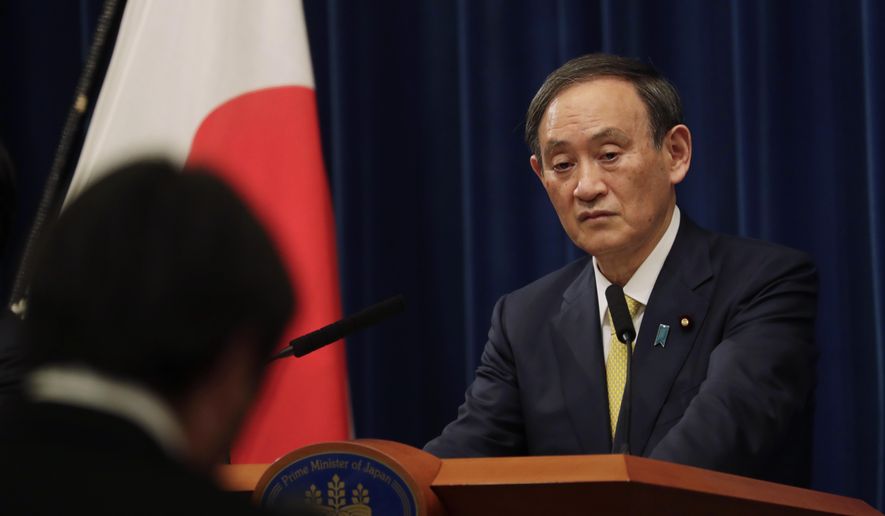TOKYO (AP) - Japan on Friday adopted a plan that delays women’s advancement goals by up to a decade after failing to reach even half of the 30% target by 2020 and other measures.
Under the new five-year gender equality plan, approved by Prime Minister Yoshihide Suga’s Cabinet, the government has postponed the goal for women to account for at least 30% of leadership positions until “as early as possible during the 2020s.”
The earlier goal was set by Suga’s predecessor, Shinzo Abe, under his “womenomics” policy designed to promote more women in the workforce to make up for Japan’s fast-aging population.
The plan called for a society with no gender bias by 2030s. But it said that Japan is still largely bound by traditional gender roles, making it difficult for women to pursue careers in business and politics while fulfilling expected responsibilities in homemaking and childrearing.
The plan backpedaled from a draft and fell short of promoting proactive steps, including a possible legal revision on family names, to allow married couples a right to choose whether to keep their maiden names. The current civil law says a married couple must choose either family name, most often causing women to adopt their husbands’ household names under Japan’s paternalistic tradition.
The government draft had called for taking “necessary steps” to address inconveniences and burdens on women. But the final plan, reflecting conservative views of Suga’s ruling lawmakers, said family name options should be carefully studied, taking into consideration Japanese tradition and possible impact on children and a sense of family unity.
Japan especially lags in women’s advancement in politics. Women account for less than 10% of lawmakers in the more powerful of its two-chamber parliament. About 40% of local assemblies have no female members or only one. Suga’s 20-member Cabinet has only two female ministers.
“We cannot say we are close to achieving the 30% target,” the new plan said. “While women’s advancement is progressing faster in other countries, Japan has fallen behind.”
Japan placed 121st in the global gender-equality ranking of 153 countries in the 2020 World Economic Forum report, falling from 101st when Abe took office in 2012.
___
Follow Mari Yamaguchi on Twitter at https://www.twitter.com/mariyamaguchi




Please read our comment policy before commenting.